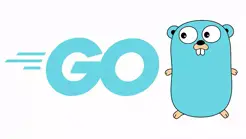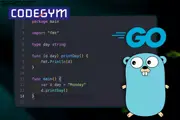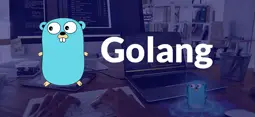100+ The opportunity to introduce the job of the Category Golang Developers
Golang Developer Jobs - High-Paying Roles
1. What is Golang?

Go, also known as Golang, is an open-source programming language designed to make it easy to build simple and efficient software. It is the newest programming language in the new technology era and was created by a team of experts at Google. Golang began development in 2007 and was released as open-source in 2009. Over time, the project has grown and is now widely used in the software development community.
Golang is similar to Java or C++ because it is also a popular programming language. However, its simplicity is what sets Golang apart from other programming languages. Golang has streamlined syntax and shares many similarities with C++. Therefore, learning Golang will not be too difficult if you are already familiar with C++.
Some other notable features of Golang include:
- It is a statically typed language.
- It has streamlined syntax, which is a similarity to C++.
- It is easy to find information on Golang.org.
- Some examples of organizations using Go include Google, Cloudflare, Dropbox, MongoDB, Netflix, SoundCloud, Twitch, and Uber.
2. Some key advantages and disadvantages of using the Go programming language
Advantages:
-
Fast compilation and execution speeds due to statically compiled binaries. This makes the build-run-debug cycle very efficient.
-
No need for a virtual machine (VM) since it compiles to native code. This improves performance.
-
Automatic memory management through garbage collection eliminates bugs caused by manually managing memory.
-
Built-in concurrency features like goroutines and channels simplify concurrent programming.
-
Large and well-maintained standard library reduces need to rely on external dependencies.
Disadvantages:
-
Lacks generics/templates which are commonly used in other languages to write abstract and reusable code.
-
Strict formatting and naming conventions that may take some getting used to for developers familiar with other languages.
-
Not compatible with some object-oriented features like method overloading and inheritance.
-
Reflection capabilities are limited compared to dynamic languages.
3. Detailed Job Description for a Golang Developer
Application Development and Maintenance: Design, develop, and maintain web applications and services using the Go (Golang) programming language.
API Development: Create and manage RESTful APIs to integrate with other applications, ensuring smooth functionality.
Performance Optimization: Optimize application performance and reliability. Ensure services operate stably and handle high traffic loads.
Testing and Debugging: Perform unit testing, integration testing, and debugging to ensure code quality. Address and resolve issues and bugs as they arise.
Data Management: Work with databases such as MySQL, PostgreSQL, or MongoDB. Design and optimize database queries.
Collaboration and Communication: Work closely with other team members, including software engineers, UI/UX designers, and other stakeholders, to understand project requirements and provide appropriate solutions.
Technology Updates: Continuously update and learn new technologies, applying best practices in software development.
4. Key skills needed for a Go Developer
]
Technical Skills:
-
Strong understanding of Go syntax, core libraries, tools and frameworks
-
Experience with databases like BoltDB, MongoDB, SQLite
-
Exposure to web technologies like HTML, CSS, JavaScript
-
Hands-on with cloud platforms and hosting environments like AWS, GCP, Azure
-
Knowledge of software design patterns, data structures and algorithms
-
Experience with version control systems like Git and GitHub
-
Exposure to other programming languages like C/C++, Java, Python
Soft Skills:
-
Logical and analytical thinking to problem-solve
-
Attention to detail and producing quality code
-
Effective communication and documentation skills
-
Ability to work independently and collaboratively in teams
-
Keenness to continuously learn and adapt to changing trends
-
Familiarity with software development processes like Agile/Scrum
-
Languages skills for global opportunities
5. Some suggestions on how to become a Golang Developer

Earn a bachelor's degree in computer science, IT or a related field. Relevant subjects help gain foundations.
Learn Go programming language concepts in-depth - variables, functions, interfaces etc.
Build small projects on your own to get hands-on experience with Go syntax, tools and frameworks.
Master popular Golang frameworks and libraries such as Gin (web framework), GORM (ORM), and Cobra (CLI applications).
Learn to use tools like Docker, Kubernetes, and CI/CD for managing and deploying Golang applications.
Join forums, social media groups, and Golang community events to connect with and learn from others.



